This article was medically reviewed by Lacy Windham, MD. Lacy Windham, MD, is a Board-Certified Obstetrician & Gynecologist in Cleveland, Tennessee. Dr. Windham attended medical school at the University of Tennessee Health Science Center in Memphis. Her residency was completed at Eastern Virginia Medical School in Norfolk, Virginia. She was the recipient of multiple awards during her residency training, including Most Outstanding Resident in Maternal Fetal Medicine, Most Outstanding Resident in Oncology, Most Outstanding Resident Overall, and Special Award in Minimally Invasive Surgery.
There are 9 references cited in this article, which can be found at the bottom of the page.
wikiHow marks an article as reader-approved once it receives enough positive feedback. In this case, 89% of readers who voted found the article helpful, earning it our reader-approved status.
This article has been viewed 450,174 times.
Although many people are at risk for cancer of the vulva, this disease is very rare. Despite the fact that few people will actually ever develop vulvar cancer, it’s advisable to know and recognize the signs of it. If you find any symptoms, your doctor will need to confirm a diagnosis of vulvar cancer. Treatment for the disease is often successful, depending on its severity.
Things You Should Know
- Vulvar cancer may not present any symptoms in its early stages. Look for unusual growths or lumps, itching or tenderness, bleeding, itching, or pain.
- Examine your vulvar skin regularly to identify any potential problems quickly. See your doctor as soon as possible if you observe any symptoms.
- Risk factors include age, STI exposure, and smoking. Vulvar cancer is very treatable with surgery or chemotherapy when it’s caught in the early stages.
Steps
Recognizing the Symptoms of Vulvar Cancer
-
1Identify potential symptoms. Vulvar cancer may not present any symptoms in its early stages, but some signs may be present. Identifying potential symptoms that you have can help you get a diagnosis and treatment as soon as possible.[1]
-
2Be aware of your risk for vulvar cancer. The exact cause of vulvar cancer isn’t known, but doctors know that certain factors and behaviors can increase your risk of getting vulvar cancer. Being aware of your risk for this disease can help you recognize it and get a diagnosis and treatment in a timely manner.[4]
- Your risk increases with age, with the average age of diagnosis for vulvar cancer 65.[5]
- Exposure to the sexually transmitted disease human papillomavirus, or HPV, can increase you risk of vulvar cancer.[6]
- Smokers may be at a higher risk for contracting vulvar cancer.[7]
- Having HIV will weaken your immune system and make you more susceptible to vulvar cancer.[8]
- A history of precancerous or skin conditions of the vulva, such as lichen sclerosis, can increase your risk of getting vulvar cancer.[9]
Advertisement -
3Feel for lumps or other irregularities in your vulva. Lumps and other irregular growths can indicate vulvar cancer. Gently feeling your vulvar area with your fingers can help identify any unusual growths.[10]
- Don’t feel uncomfortable or self-conscious touching your vulva. You’re not doing anything wrong and helping to protect your health.[11]
- Gently touch the various parts of your vulva to feel for any irregular growths or anomalies such as lumps or wart-like lesions. Make sure to feel inside of the labia as well.[12]
- It’s a good idea to feel your vulva regularly so that you know what is normal for you.[13]
- See your doctor as soon as possible if you notice any of these symptoms.[14]
-
4Observe pain, itching, or bleeding. Pay attention to your body for any unusual or extended itching, burning, or bleeding. These symptoms can indicate vulvar cancer, especially if they don’t go away.[15]
-
5Examine your genitals. Vulvar cancer forms in the vulva, which is made up by the external genitals including the clitoris, labia, vaginal opening, and any surrounding skin or tissue.[19] Examining your genitals, along with identifying symptoms, can help you recognize potential sites of vulvar cancer.[20]
- Consider using a mirror to help you examine your vulva.
- Do regular exams of your vulvar skin so that you know what your vulva normally looks like and can easily identify any potential problems.[21]
- Look for changes in the appearance of your vulvar skin such as variation in color or skin thickness. Growths that look like a wart or an ulcer can also be a sign of vulvar cancer.[22]
- Vulva cancer occurs most often on the inner edges of the labia, which are the two folds of skin on the outer part of the female genitals.[23]
- You can also ask your longtime partner if they’ve noticed any changes in your vulva. He or she may notice differences more quickly than you do.[24]
- See your doctor as soon as possible if you observe any of these symptoms.[25]
Getting a Diagnosis and Treatment
-
1See your doctor. If you discover any of the signs or symptoms of vulvar cancer and are at risk for the disease, see your doctor as soon as possible. Vulvar cancer is very treatable, but early diagnosis is important to minimize the length and severity of treatment.[26]
- If you can, see your gynecologist, who is best equipped to diagnose vulvar cancer. If necessary, she will refer you to other doctors or specialists.
- Your doctor will conduct a physical exam to check for signs of vulvar cancer and will also likely ask for a health history, including factors such as health habits and past illnesses.[27]
- Part of your physical exam may be examining your vulva under a special magnifying device.[28]
-
2Get tests and a diagnosis. If your doctor suspects that you have vulvar cancer, she may order tests after conducting your physical exam. These tests are the only way to confirm a diagnosis of vulvar cancer.[29]
- The most common test for vulvar cancer is a biopsy. Your doctor will remove a small amount of vulvar cells or tissue and send them for a laboratory to check for signs of cancer.[30]
- If tests confirm the diagnosis of vulvar cancer, you may need additional tests to determine if the cancer has spread within your body.[31]
- Additional testing may include a pelvic exam, colposcopy, x-rays, CT scan or an MRI, and a lymph node biopsy.[32]
-
3Get treatment. Your doctor will prescribe a course of treatment for a diagnosed case of vulvar cancer based on the severity of the disease. There are many different treatment options and they may be successful if diagnosed in the earlier stages of the disease.[33]
- The four standard treatments used for vulvar cancer are: surgery, radiation therapy, chemotherapy, and biologic therapy.[34]
- Surgery is the most common treatment for vulvar cancer and can remove all the cancer without damaging the person's sexual function.[35]
- Your doctor will suggest a treatment based on the severity of your vulvar cancer.
- Consider taking part in a clinical trial, which would offer you the opportunity to try one of the new treatment methods. Stages one and two may only require surgery, while stages three and four may require more radical surgery as well as chemotherapy and radiation.[36]
Warnings
- Don’t ignore symptoms. If cancer cells reach the pelvic lymph nodes, secondary cancers could spread to anywhere in the body.⧼thumbs_response⧽
- There is no treatment for HPV once you’ve contracted it. If you are under the age of 30, consider getting the HPV vaccine to decrease your risk of HPV related diseases.[37]⧼thumbs_response⧽
References
- ↑ http://www.nlm.nih.gov/medlineplus/vulvarcancer.html
- ↑ http://www.nlm.nih.gov/medlineplus/vulvarcancer.html
- ↑ http://www.cdc.gov/cancer/vagvulv/basic_info/symptoms.htm
- ↑ http://www.mayoclinic.org/diseases-conditions/vulvar-cancer/basics/risk-factors/con-20043483
- ↑ http://www.mayoclinic.org/diseases-conditions/vulvar-cancer/basics/risk-factors/con-20043483
- ↑ http://www.mayoclinic.org/diseases-conditions/vulvar-cancer/basics/risk-factors/con-20043483
- ↑ http://www.mayoclinic.org/diseases-conditions/vulvar-cancer/basics/risk-factors/con-20043483
- ↑ http://www.mayoclinic.org/diseases-conditions/vulvar-cancer/basics/risk-factors/con-20043483
- ↑ http://www.mayoclinic.org/diseases-conditions/vulvar-cancer/basics/risk-factors/con-20043483
- ↑ http://www.cdc.gov/cancer/vagvulv/basic_info/symptoms.htm
- ↑ http://www.cdc.gov/cancer/vagvulv/basic_info/symptoms.htm
- ↑ http://www.cdc.gov/cancer/vagvulv/basic_info/symptoms.htm
- ↑ http://www.cdc.gov/cancer/vagvulv/basic_info/symptoms.htm
- ↑ http://www.cdc.gov/cancer/vagvulv/basic_info/symptoms.htm
- ↑ http://www.cdc.gov/cancer/vagvulv/basic_info/symptoms.htm
- ↑ http://www.cdc.gov/cancer/vagvulv/basic_info/symptoms.htm
- ↑ http://www.cdc.gov/cancer/vagvulv/basic_info/symptoms.htm
- ↑ http://www.cdc.gov/cancer/vagvulv/basic_info/symptoms.htm
- ↑ http://www.cancer.gov/types/vulvar
- ↑ http://www.nlm.nih.gov/medlineplus/vulvarcancer.html
- ↑ http://www.cdc.gov/cancer/vagvulv/basic_info/symptoms.htm
- ↑ http://www.nlm.nih.gov/medlineplus/vulvarcancer.html
- ↑ http://www.cancer.gov/types/vulvar/patient/vulvar-treatment-pdq#link/stoc_h2_0
- ↑ http://www.cdc.gov/cancer/vagvulv/basic_info/symptoms.htm
- ↑ http://www.cdc.gov/cancer/vagvulv/basic_info/symptoms.htm
- ↑ http://www.cancer.gov/types/vulvar/patient/vulvar-treatment-pdq#link/stoc_h2_0
- ↑ http://www.cancer.gov/types/vulvar/patient/vulvar-treatment-pdq#link/stoc_h2_0
- ↑ http://www.mayoclinic.org/diseases-conditions/vulvar-cancer/basics/tests-diagnosis/con-20043483
- ↑ http://www.cancer.gov/types/vulvar/patient/vulvar-treatment-pdq#link/stoc_h2_0
- ↑ http://www.cancer.gov/types/vulvar/patient/vulvar-treatment-pdq#link/stoc_h2_0
- ↑ http://www.cancer.gov/types/vulvar/patient/vulvar-treatment-pdq#link/stoc_h2_0
- ↑ http://www.cancer.gov/types/vulvar/patient/vulvar-treatment-pdq#link/stoc_h2_0
- ↑ http://www.cancer.gov/types/vulvar/patient/vulvar-treatment-pdq#link/stoc_h2_0
- ↑ http://www.cancer.gov/types/vulvar/patient/vulvar-treatment-pdq#link/stoc_h2_0
- ↑ http://www.cancer.gov/types/vulvar/patient/vulvar-treatment-pdq#link/stoc_h2_0
- ↑ http://www.cancer.gov/types/vulvar/patient/vulvar-treatment-pdq#link/stoc_h2_3
- ↑ http://www.cdc.gov/hpv/vaccine.html
About This Article
To recognize vulva cancer symptoms, look for unusual growths, itching, or tenderness of the vulvar skin. You might also feel some lumps or irregularities in your vulva, so make sure to gently touch in and around this area so you know what’s normal for you. Any lingering pain or burning, especially during sex or urination, should also prompt you to see a doctor. In addition to any outward signs, consider your risk factors, which include exposure to HPV, smoking, having HIV, and a history of precancerous or skin conditions of the vulva. For more tips from our Medical co-author, including how to get a diagnosis for vulvar cancer, keep reading!
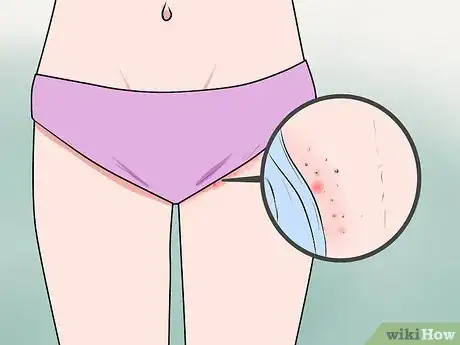
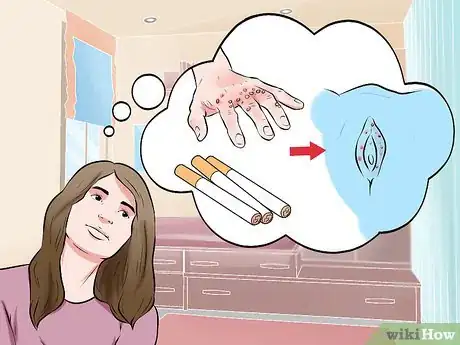
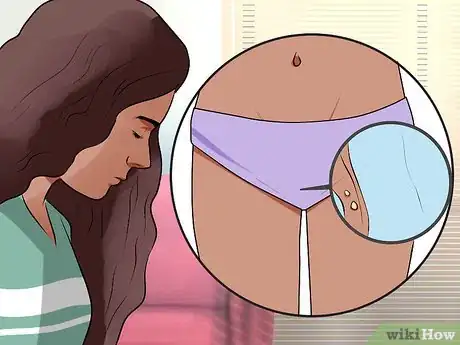
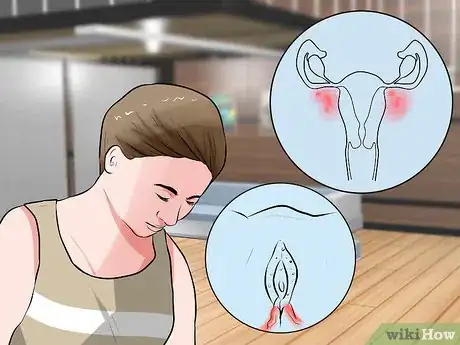

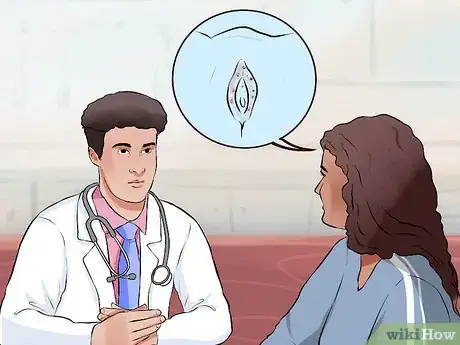
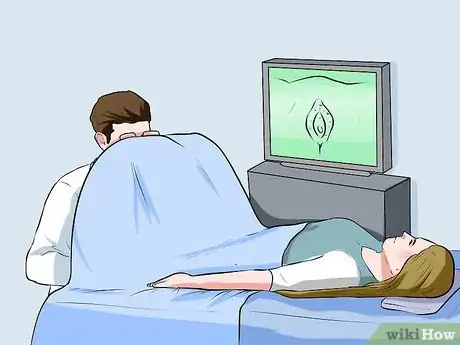
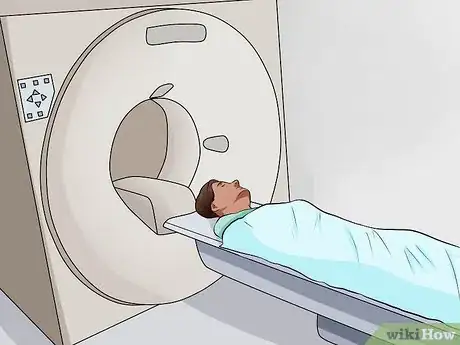
-Step-13.webp)


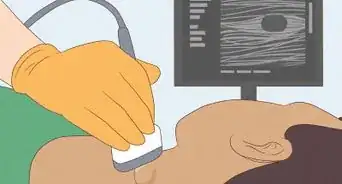
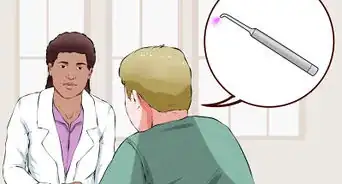

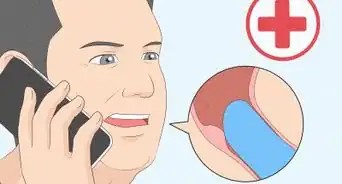
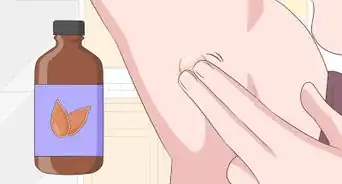




-Step-8-Version-3.webp)




-Step-13.webp)


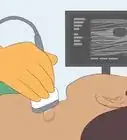




































Medical Disclaimer
The content of this article is not intended to be a substitute for professional medical advice, examination, diagnosis, or treatment. You should always contact your doctor or other qualified healthcare professional before starting, changing, or stopping any kind of health treatment.
Read More...